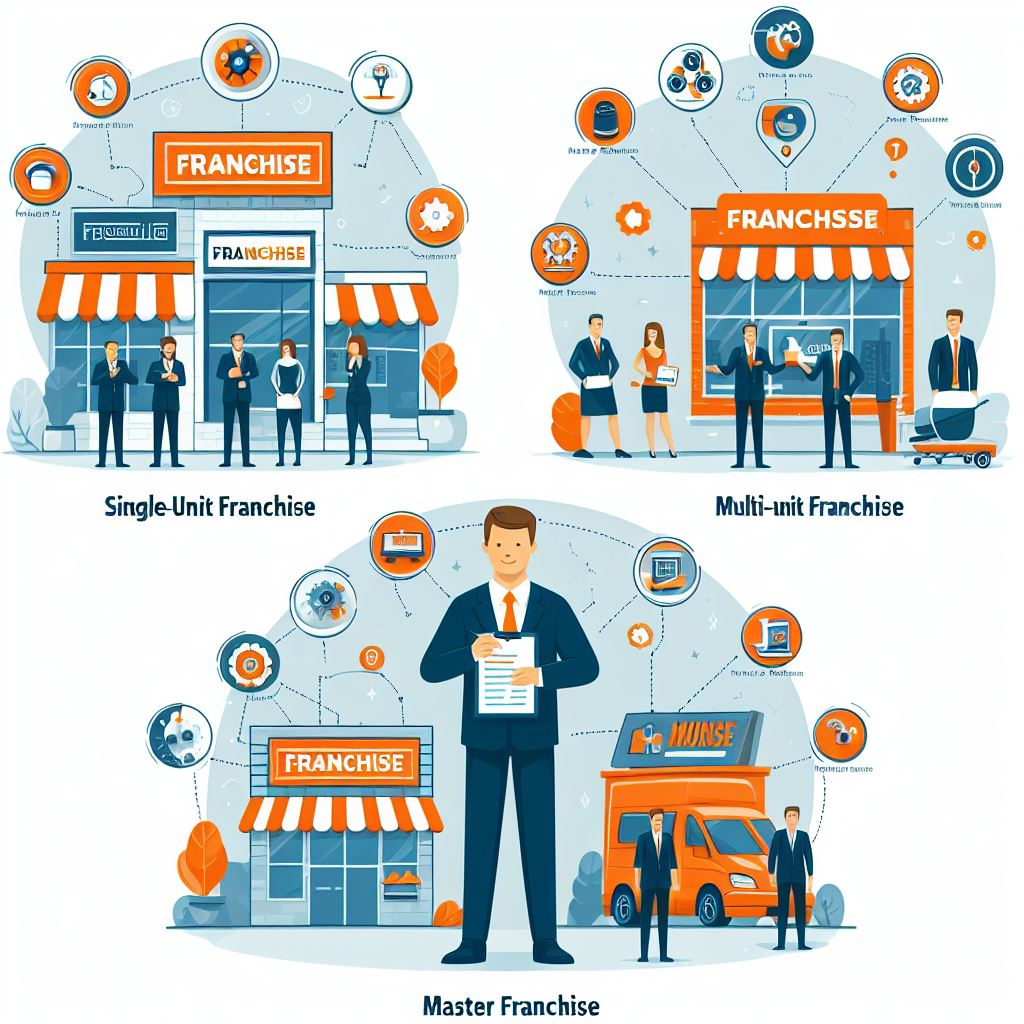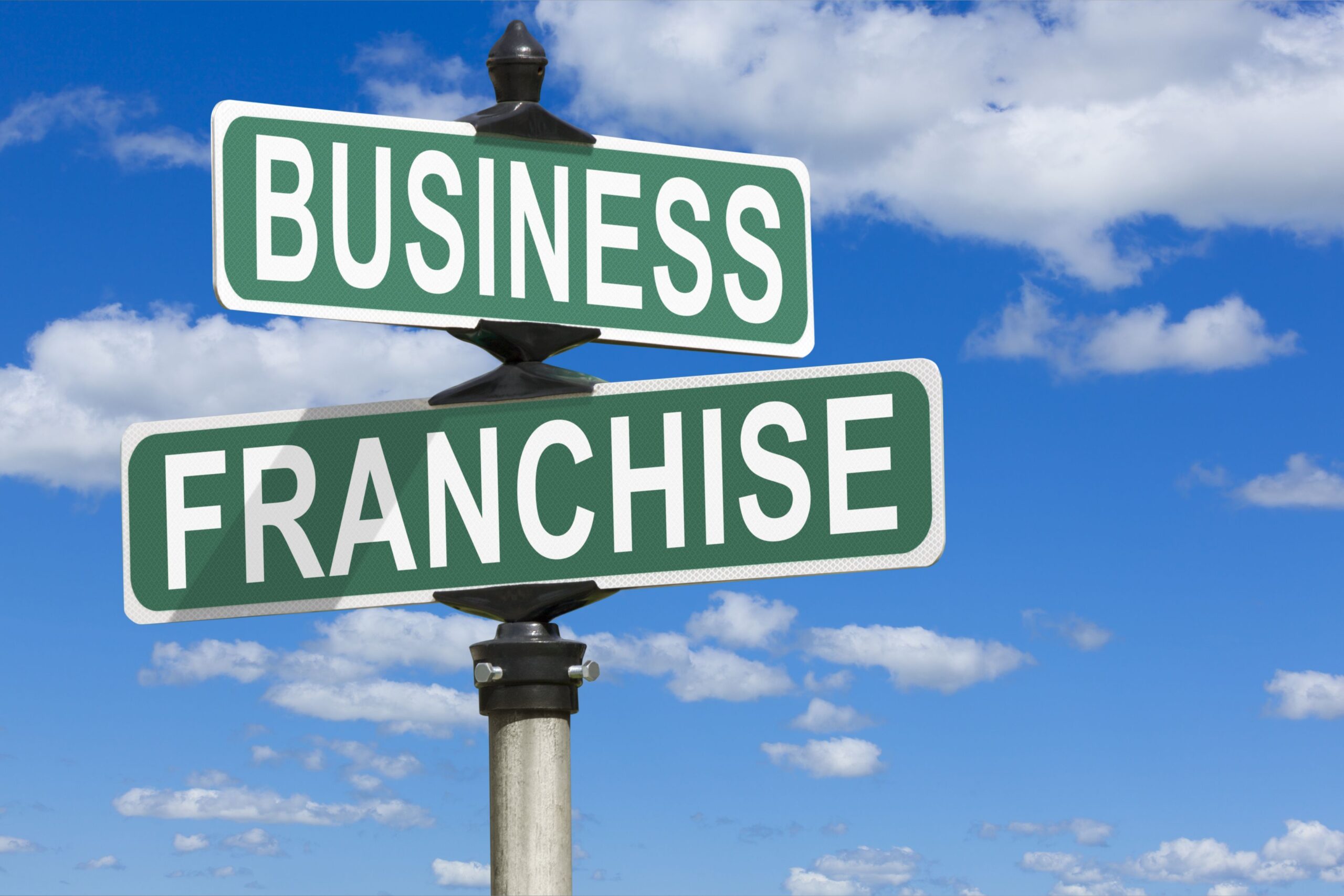Starting your own franchise business can be an exciting venture, offering the opportunity to be your boss while benefiting from the established brand and support of a larger organization. Here’s a comprehensive guide to help you understand and navigate the process of starting a franchise business.
Introduction to Franchise Business
Franchises come in various formats, from quick-service restaurants to retail stores and service-oriented businesses. They provide a structured system for distributing goods and services that includes branding, marketing, training, and operational support. As a franchisee, you’ll benefit from the franchisor’s experience and resources, which can help you navigate the complexities of business ownership.
The franchise model is built on the replication of success. It’s about replicating a winning formula, maintaining brand consistency, and delivering the quality and service that customers expect. By joining a franchise, you become part of a larger story—a network of entrepreneurs who share a common brand and collective goal of business growth and customer satisfaction.
Types of Franchise Business Models

1. Product Franchises
Product franchises, also known as traditional or distribution franchises, represent a significant portion of the franchise industry. This model is centered around the distribution and sale of the franchisor’s products. It is akin to a supplier-dealer relationship, where the franchisee is authorized to sell certain products under the franchisor’s brand.
In a product franchise, the franchisor controls the brand and the quality of the products, while the franchisee is responsible for the retail sale of the goods. The franchisor typically provides the products, trademarks, and logos, and the franchisee pays a fee or purchases a minimum amount of products to maintain the franchise agreement.
Key Characteristics of Product Franchises:
- Product-Centric: The focus is on selling the franchisor’s products.
- Brand Recognition: Franchisees benefit from the established reputation of the brand.
- Inventory Management: Franchisees must manage inventory levels effectively.
- Sales Expertise: A strong sales strategy is crucial for success.
- Limited Services: Unlike business format franchises, the offering is usually limited to the product itself without additional services.
Examples of Product Franchises:
- Automotive parts stores
- Beverage distributors
- Gas stations
Product franchises are ideal for entrepreneurs who have experience in retail and sales and who are looking to leverage an established brand to attract customers. The success of a product franchise depends heavily on the franchisee’s ability to market and sell the products effectively within their territory.
2. Business Format Franchises
Business format franchises are a popular model that offers a comprehensive business package. This model is not just about product distribution; it’s about replicating the franchisor’s successful business formula across various locations.
Key Features of Business Format Franchises:
- Turnkey Operation: Franchisees receive a full-fledged business model, including the brand name, products, and operating procedures.
- Training and Support: Franchisees benefit from extensive training programs and ongoing support from the franchisor to ensure consistent quality and service.
- Marketing and Advertising: Franchisees often participate in national advertising campaigns and receive local marketing assistance.
- System Standards: Franchisees must adhere to established systems and standards, which can include store layout, menu items, and service protocols.
Advantages of Business Format Franchises:
- Brand Consistency: Customers receive the same experience regardless of location, which is a cornerstone of the franchise’s value proposition.
- Operational Support: Franchisees have access to proven systems and processes, reducing the learning curve and operational risks.
- Network Strength: Being part of a larger network provides collective buying power and brand recognition.
Challenges of Business Format Franchises:
- Initial Investment: The cost of entry can be higher due to the comprehensive nature of the business package.
- Compliance: Franchisees must comply with strict operational guidelines, which can limit creativity and flexibility.
Examples of Business Format Franchises:
- Fast-food restaurants
- Hotel chains
- Fitness centers
Business format franchises are ideal for entrepreneurs who wish to leverage an established brand and proven business model while still enjoying the benefits of business ownership. This model requires a commitment to maintaining the franchisor’s standards to ensure the integrity of the brand and the customer experience.
Required Compliances for Operating a Franchise

When you enter the world of franchising, adhering to a set of compliances is non-negotiable. These regulations ensure the integrity of the franchise system and protect both the franchisor’s brand and the franchisee’s investment.
Key Compliances Include:
- Franchise Disclosure Document (FDD): In many countries, franchisors must provide an FDD to prospective franchisees before any agreement is signed. This document contains vital information about the franchisor’s business, legal history, and financial statements.
- Trademark Laws: Franchisees must use the franchisor’s trademarks correctly to prevent dilution of the brand and to avoid legal issues related to intellectual property rights.
- Business Licenses and Permits: Depending on the location and industry, franchisees may need to obtain various business licenses and permits to operate legally.
- Health and Safety Regulations: Franchises, especially those in the food service and childcare sectors, must comply with strict health and safety regulations to protect customers and employees.
- Employment Laws: Franchisees must adhere to local employment laws, which cover wages, working conditions, and non-discrimination policies.
- Data Protection Regulations: With the increasing importance of customer data, franchisees must ensure compliance with data protection laws, such as GDPR in the European Union.
Why Compliance Matters:
Compliance is not just about legalities; it’s about maintaining the standards that customers expect from a franchise brand. It also protects the franchisee from potential legal disputes and financial penalties. By understanding and adhering to these compliances, franchisees can focus on growing their business with confidence.
Required Documents for Starting a Franchise

Embarking on a franchise venture requires careful documentation to ensure legal compliance and operational success. Here’s a brief overview of the essential documents needed:
- Franchise Agreement: The cornerstone of the franchise relationship, this contract outlines the rights and responsibilities of both the franchisor and franchisee.
- Franchise Disclosure Document (FDD): A legal document provided by the franchisor that contains detailed information about the franchise system, fees, and legal obligations.
- Operations Manual: A comprehensive guide that provides detailed instructions on running the franchise, including brand standards, operational procedures, and training materials.
- Lease Agreements: If the franchise involves a physical location, a lease agreement for the property will be necessary.
- Financial Documents: This includes business plans, loan agreements, and financial statements that are crucial for securing financing and managing the business.
- Trademark and Service Mark Documentation: Legal documents that prove the right to use the franchisor’s trademarks and service marks.
- Confidentiality Agreements: To protect the proprietary information of the franchisor, franchisees may need to sign confidentiality agreements.
- Insurance Policies: Franchisees will need to secure various insurance policies to protect the business and comply with franchisor requirements.
These documents form the framework within which the franchise operates. They are not only mandatory for legal reasons but also serve as a roadmap for maintaining the integrity of the franchise system and ensuring the success of the franchisee.
Branding Awareness in Franchising
Branding is the heartbeat of a franchise system. It’s what customers recognize, trust, and prefer. For a franchisee, building and maintaining brand awareness is pivotal to attracting and retaining customers.
Key Aspects of Branding Awareness:
- Consistent Brand Image: Uniformity in logos, colors, and messaging across all franchise locations reinforces brand recognition.
- Customer Experience: Delivering a consistent and positive customer experience strengthens brand loyalty.
- Local Marketing: Tailoring marketing efforts to the local community while aligning with the franchisor’s national campaigns can boost local presence.
- Online Presence: A strong online presence, including a website and social media, is essential for engaging with customers and building brand awareness.
- Community Involvement: Participating in local events and sponsorships can increase visibility and goodwill within the community.
Strategies for Enhancing Brand Awareness:
- Training: Franchisees should receive thorough training to understand the brand’s core values and messaging.
- Promotions: Regular promotions and new product launches can keep the brand top-of-mind for consumers.
- Customer Feedback: Actively seeking and responding to customer feedback demonstrates a commitment to service quality.
Challenges in Branding:
- Market Saturation: Differentiating the franchise in a crowded market can be challenging.
- Brand Compliance: Ensuring all franchisees adhere to brand standards requires vigilance and support from the franchisor.
Advantages of Starting Your Franchise
Launching a franchise can be a transformative step for entrepreneurs. Here are the key advantages of starting your franchise:
- Brand Leverage: Utilizing an established brand’s reputation can provide instant recognition and credibility.
- Operational Support: Franchisors offer extensive operational support, including training, which can be invaluable for new business owners.
- Reduced Risk: Franchises often have a higher rate of success compared to start-ups due to their proven business models.
- Marketing Strength: Franchisees benefit from the franchisor’s marketing efforts, which can include national advertising and promotional strategies.
- Purchasing Power: Being part of a franchise network can lead to cost savings through bulk purchasing and negotiated supplier contracts.
- Financial Assistance: Some franchisors offer financing to franchisees, which can help with the initial investment and operational costs.
- Exclusive Territories: Franchisees may receive exclusive rights to operate in certain territories, reducing direct competition.
- Network and Community: Franchisees become part of a larger network, providing opportunities for peer support and shared knowledge.
These advantages combine to offer a compelling case for starting a franchise, providing a pathway to business ownership with the backing of an established system and support network.
Disadvantages of Starting Your Franchise
While starting a franchise offers numerous benefits, there are also several disadvantages that potential franchisees should consider:
- Initial Investment: Franchises often require a significant initial investment, which can include franchise fees, startup costs, and working capital.
- Ongoing Fees: Franchisees typically pay ongoing royalties and advertising fees, which can impact profitability.
- Limited Creativity: Franchisees must adhere to the franchisor’s established systems and processes, leaving little room for innovation or customization.
- Territorial Restrictions: Franchise agreements may limit where you can operate, potentially impacting expansion opportunities.
- Reputation Risk: A franchisee’s business can be affected by the franchisor’s actions or the performance of other franchisees.
- Contractual Obligations: Franchise agreements can be long-term and may include strict renewal conditions or exit penalties.
- Market Saturation: In some cases, market saturation can limit growth potential if too many franchise units are competing in the same area.
- Dependence on Franchisor: The success of the franchise can be heavily dependent on the franchisor’s business model, marketing, and support.
Understanding the Challenges:
These disadvantages highlight the importance of thorough due diligence and understanding the franchise agreement’s terms. Potential franchisees should carefully assess their ability to operate within the franchisor’s system and the long-term implications of the franchise relationship.

